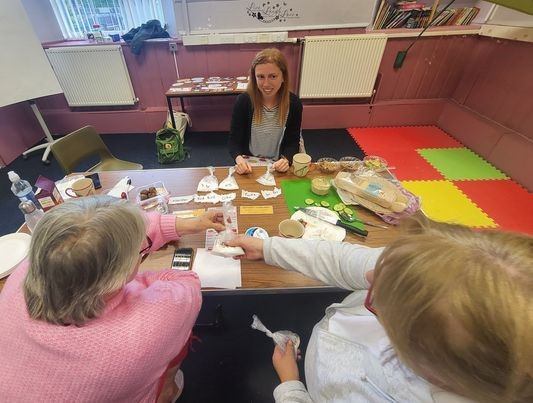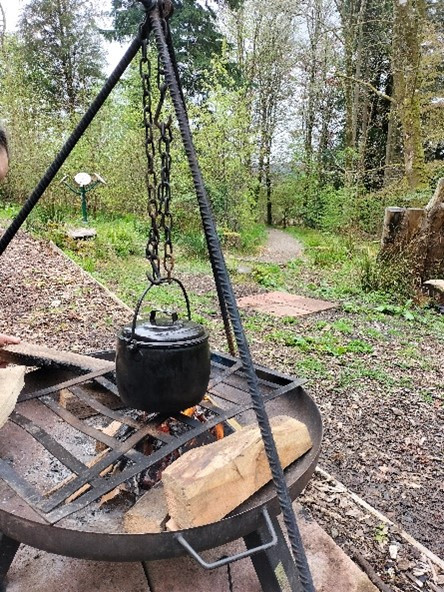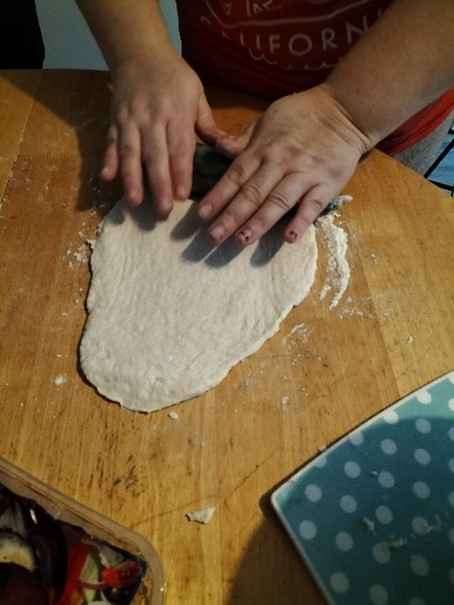
Women's health group in Edinburgh. Talking about sugar and having lunch together.
Find out more: https://www.mecopp.org.uk/
MECOPP is an Edinburgh based charity providing a range of support and services to informal carers and those in receipt of care across Scotland, with capacity and funding allocated per local authority. We work primarily with communities who experience disadvantage due to ethnicity, age, disability or other protected characteristics.
Community Health Matters’ is an exciting new service delivered by the MECOPP Community Health Team alongside our existing support services. Working closely with community members, we aim to improve the physical and mental health of individuals, increase access to services and support better health outcomes.
The Dignity Principles are at the core of MECOPP’s asset-based community approach to work with and support the Gypsy/Traveller communities living in Scotland. Involving individuals in the decision-making process is crucial to ensure that the needs and wants are heard and effectively responded to. For example, all pilots are the result of consultation sessions, and the consequent feedback is used to further develop the service and to create new ones.
Moreover, we always encourage people to share their knowledge and skills (if they are willing and comfortable with that). This creates spaces for people to feel valued and able to contribute. For example, at one of the Cook and Blether in Lochgilphead, one family brought their chitties (outdoor structure to cook), old family pot and shared the recipe of their veggie stovies. This very kind gesture allowed elderly people living by themselves to taste a dish of “the old days” and for the young generation to learn something new about their traditions. It was an enriching and meaningful moment for everyone involved. In addition to this, giving people a sense of control by choosing what they cook and eat is essential to promote a dignified and culturally appropriate approach in addressing food insecurity. At MECOPP’s events food does not only have a nourishing role for body and mind, it also represents a social opportunity to meet new people and to feel connected to others.

Chittiesmaking vegetarian stovies in the Blarbuie woodland
All events/initiatives are free of charge for Gypsy/Travellers to attend and we always offer to cover for their mileage/transport if they need to travel to come to the event. Food insecurity is a multi-layered problem, if we were to provide services/activities without enabling everyone to join in, then we would be adding a further barrier, instead of dismantling the issue. To be able to take part in community life and to have your voice heard and valued is at the heart of MECOPP’s approach in addressing food insecurity.

Making pizza dough at home, Oban.
This project started in April 2021, therefore covid has been one of the main challenges. Navigating regulations across different geographical locations and staying updated with unpredictable changes were some of the challenges that we had to face as a team. Most crucially, people’s wellbeing and mental health have been negatively impacted by covid (e.g. isolation, social anxiety, low self-worth, body image), and this has naturally had an impact on people’s participation and engagement with events and activities.
However, on a positive note, these challenges represented an opportunity to revisit our way of working (individually and as a team) and to improve our flexibility and creative skills, which have been fundamental to developing safe and engaging projects. Moreover, the solid trust between MECOPP workers and clients created prior to covid facilitated the staying in touch during lockdowns, the sensitive conversations about food insecurity and the gradual start of social activities.
The Peer Network meetings and learning events organised by the Dignity Project have been great opportunities to meet and share ideas with people working in the community food environment. Moreover, the learning events have offered various occasions to learn more about topics and (local and national) initiatives to tackle and prevent food insecurity in a dignified way.
“Put people at the centre, by involving them in the conversations to gather their thoughts and ideas and by working together in the realisation of the solutions. Their lived experiences are precious and will provide information about solutions that are effective, dignified and culturally appropriate to them.” – Valerie Folco, Community Food Development Worker.